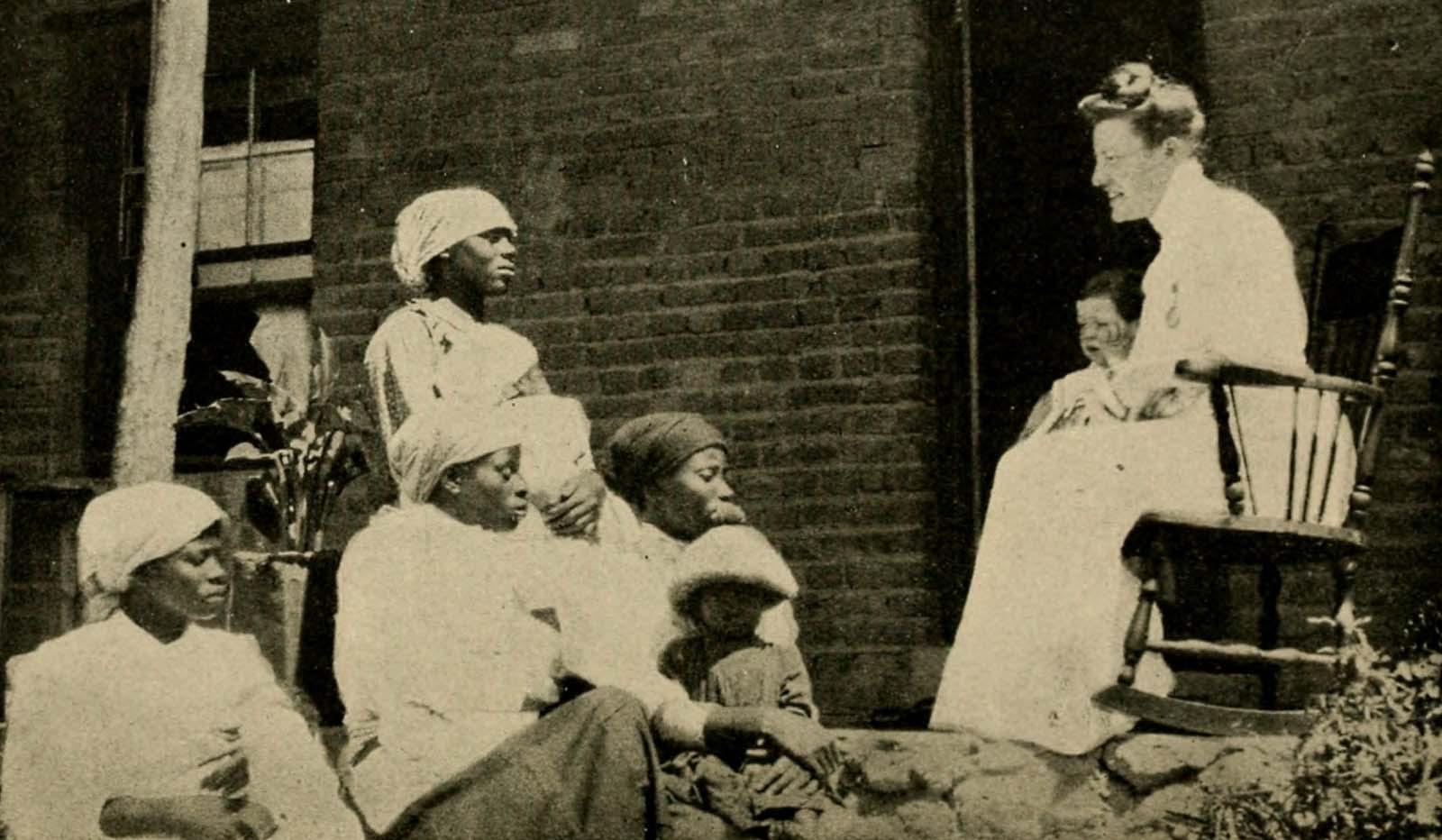A Quick Look at History
Christianity in Africa goes back to the earliest days of the church, when it spread along the Mediterranean and Red Sea coastlands of north and northeast Africa and their hinterlands. Subsequently, it was displaced by Islam in the 7th and 8th centuries.
Christianity was introduced later by European Christian missions initially on the heels of Portuguese expansion into the Kingdom of the Kongo and Angola in the 16th century. It also was carried on by the slave trade in the ensuing centuries, and the general expansion of European influence and colonialism in the 19th and 20th centuries in an explosive combination of “Christianity, Commerce and Civilization.”
While conversion to Christianity increased with the extension of formal European colonial rule, western education and new economic opportunities, Africans interpreted the new faith in the light of their own religious concerns and concepts and made it their own. In the process, Western missionaries were slowly displaced by African evangelists, who helped translate the Bible, interpret it for themselves, and spread the faith far beyond the mission compounds.
![A Christian Wedding Group of Kaffrarian Christians in South Africa. Image Credit: By Internet Archive Book Images [No restrictions], via Wikimedia Commons](http://blog.swaliafrica.com/wp-content/uploads/2016/05/A-Christian-Wedding-Group-of-Kaffrarian-Christians-in-South-Africa.jpg)
A Christian Wedding Group of Kaffrarian Christians in South Africa. Image Credit: Internet Archive Book Images, via Wikimedia Commons
In this process, African Christians struggled for control of the church and its messages, often emphasizing charismatic prophecy and healing, founding thousands of new churches and popular movements within Protestantism and Catholicism. This played prominent roles in contemporary African society and politics.
Christianity: Love Preachers or Colonial Forerunners
In southern Africa most of the leaders who participated in the fight for independence were educated by missionaries or schools built by missionaries. During colonialism in South Africa they defied the government and educated black students at a time when the colonial governments forbade this practice. Many missionaries built clinics and introduced medicines that improved infant mortality values and immunizations which saved countless millions of black lives. This article is not an indictment against the Christian faith or the sacred Christian text but an analysis of some of the missionaries who forsook the teachings of the Holy Bible the sacred text of Christianity in favor of government trinkets. It is a fact that some of these missionaries assisted their governments in the subjugation of Africans.
European missionaries especially from Portugal, France, Britain, and Germany went to Africa under the premise of going to convert the locals to Christianity. Some of them stuck to their mission others however, aided in the colonization of Africans by Europeans. In many cases Christian conversion looked more like European Capitalist conversion and the plunder of African resources and cultural heritage. The words of Lamin Sanneh will suffice
“… much of the standard Western scholarship on Christian missions proceeds by looking at the motives of individual missionaries and concludes by faulting the entire missionary enterprise as being part of the machinery of Western cultural imperialism.” As an alternative to this view, Sanneh presents a different perspective arguing that “missions in the modern era have been far more, and far less, than the argument about motives customarily portrayed.”
It is a fact that some of these missionaries assisted their governments in the subjugation of Africans.
According to Robert Moffat, a famous missionary who wrote about Mzilikazi and the Ndebele (Zimbabwe) in 1857, he postulated that “His government, is one of tyranny and intrigue, lies and blood. I feel melancholy…. I often feel willing to suffer anything or die any kind of death it fit would only result in the moral renovation of the Matabele, their deliverance from their present awfully degraded condition.”
Missionaries on a Civilizing Mission
It is believed that some Missionaries came with the attitude that Europeans were superior to Africans. Most missionaries like David Livingstone and Fabri of the German Missionary Society in Namibia believed that once Africans were colonized by European countries they would be more likely to seek after Western Education and Christianity which the missionaries controlled. It was their mission to do anything necessary to convert Africans who were viewed as uncivilized and barbaric. Missionaries often failed to distinguish between Christian principles and those of the colonialists. They misused biblical passages to further the causes of their colonial friends.
The message preached by Missionaries encouraged Africans to rebel against everything that formed the foundation of African family and society. They even preached that salvation could only be obtained through formal work which meant one had to earn a paycheck. The only people who paid for labor at the time were Europeans colonialists. Most missionaries new to Africa believed Africans were lazy and were not using their land adequately so it was in their best interest for Europeans to use it. Some missionaries had developed friendships with local clans and used this to further European causes. Often African chiefs sought advice from missionaries on how to deal with other Europeans seeking treaties. However, the missionaries almost always betrayed their trust.
The message preached by Missionaries encouraged Africans to rebel against everything that formed the foundation of African family and society.
History shows that the first extensive shipment of black Africans that would later become known as the Transatlantic slave trade, was initiated at the request of Bishop Las Casas and authorized by Charles V in 1517. Ironically, Catholic missionaries such as the Jesuits, who also owned slaves, worked to alleviate the suffering of Native American slaves in the New World. While showing mercy to Native Americans, the church placed some books critical of slavery on the Index of Forbidden Books by the Holy Office between 1573-1826. Capuchin missionaries were excommunicated for calling for the emancipation of black slaves in the Americas.

Portrait of Bartolomé de Las Casas. He advocated the use of African slaves instead of Natives in the West-Indian colonies; consequently, criticisms have been leveled at him as being partly responsible for the beginning of the Transatlantic slave trade
The historic words of Jomo Kenyatta of Kenya still resonates in history; he opined that “when the missionaries arrived, the Africans had the lands and the missionaries had the bibles. They taught us how to pray with our eyes closed. When we opened them, they had the land and we had the bible”.
The question therefore remains if the missionaries’ views towards Africans were so negative how could they have been any benefit to Africans? In essence colonialism was partly a result of betrayal by missionaries. Even though we are grateful that they educated Africans and opened clinics in the most remote villages we cannot forget that their motives were impure and their actions very detrimental to the African society.
In conclusion, the introduction of Christianity to Africa inarguably was with mixed intentions. While some used the institutions to create better health systems, provide western education and displayed acts of assumed altruism, one can’t exempt the selfish and unscrupulous Europeans who used the guise of missions to infiltrate the continent. Christianity as a religion is not bad in itself, rather, it’s usage in the hands of corrupt persons has made Africans to view the life preaching religion, suspiciously.
[Header image]– By Internet Archive Book Images [No restrictions], via Wikimedia Commons
Sources: – www.missionariesofafrica.org, www.blackhistory.com, en.wikipedia.org/wiki/Christianity

